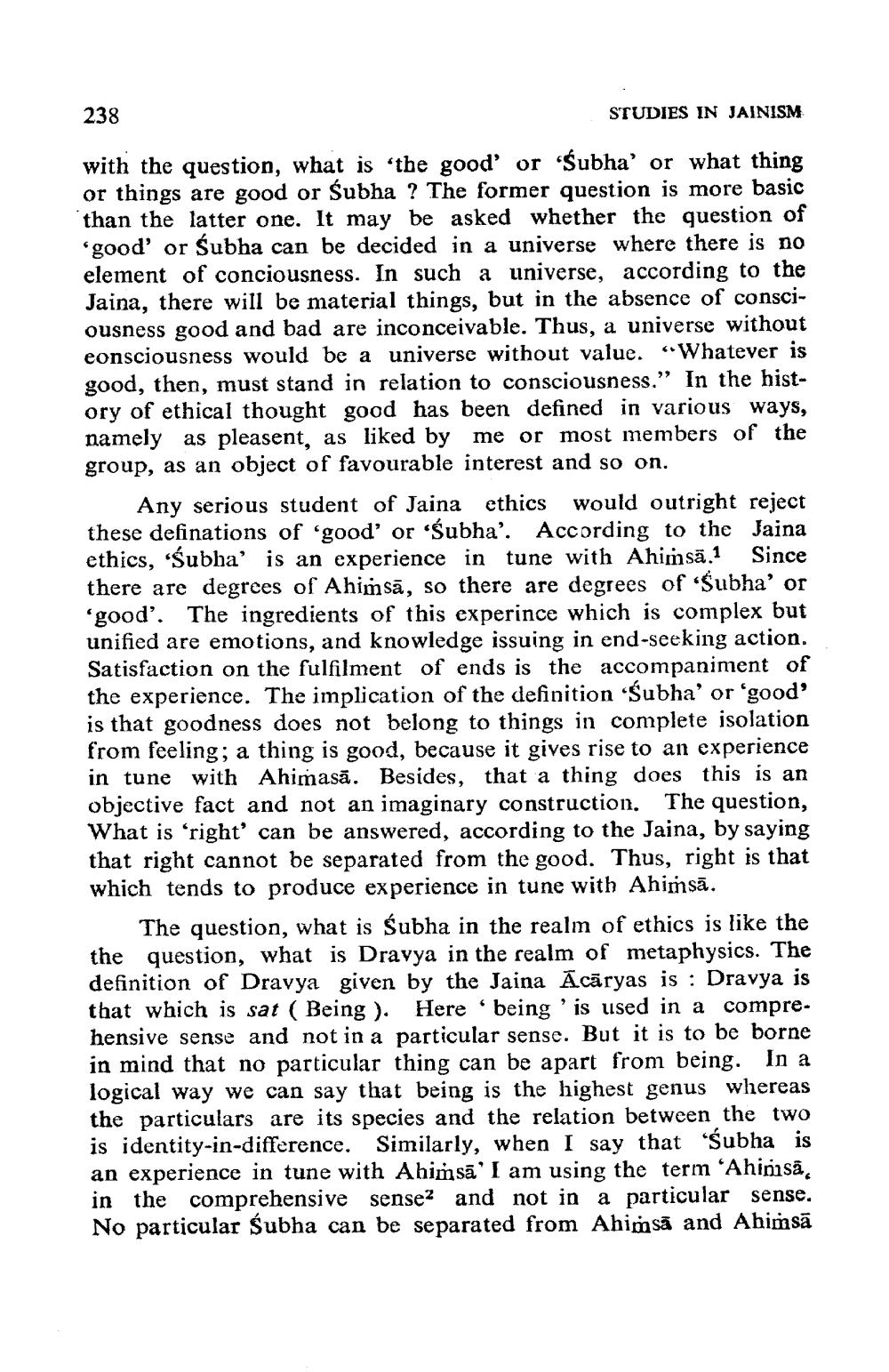________________
238
STUDIES IN JAINISM
with the question, what is the good' or 'Subha' or what thing or things are good or Subha ? The former question is more basic than the latter one. It may be asked whether the question of 'good' or Subha can be decided in a universe where there is no element of conciousness. In such a universe, according to the Jaina, there will be material things, but in the absence of consciousness good and bad are inconceivable. Thus, a universe without eonsciousness would be a universe without value. “Whatever is good, then, must stand in relation to consciousness.” In the history of ethical thought good has been defined in various ways, namely as pleasent, as liked by me or most members of the group, as an object of favourable interest and so on.
Any serious student of Jaina ethics would outright reject these definations of 'good' or 'śubha'. According to the Jaina ethics, 'śubha' is an experience in tune with Ahimsā.1 Since there are degrees of Ahimsā, so there are degrees of 'Subha' or 'good'. The ingredients of this experince which is complex but unified are emotions, and knowledge issuing in end-seeking action. Satisfaction on the fulfilment of ends is the accompaniment of the experience. The implication of the definition "Subha' or 'good' is that goodness does not belong to things in complete isolation from feeling; a thing is good, because it gives rise to an experience in tune with Ahimasā. Besides, that a thing does this is an objective fact and not an imaginary construction. The question, What is ‘right can be answered, according to the Jaina, by saying that right cannot be separated from the good. Thus, right is that which tends to produce experience in tune with Ahimsā.
The question, what is Subha in the realm of ethics is like the the question, what is Dravya in the realm of metaphysics. The definition of Dravya given by the Jaina Ācāryas is : Dravya is that which is sat ( Being ). Here being 'is used in a comprehensive sense and not in a particular sense. But it is to be borne in mind that no particular thing can be apart from being. In logical way we can say that being is the highest genus whereas the particulars are its species and the relation between the two
identity-in-difference. Similarly, when I say that "Subha is an experience in tune with Ahimsa'I am using the term 'Ahinsa, in the comprehensive sense and not in a particular sense. No particular Subha can be separated from Ahimsã and Ahimsā




